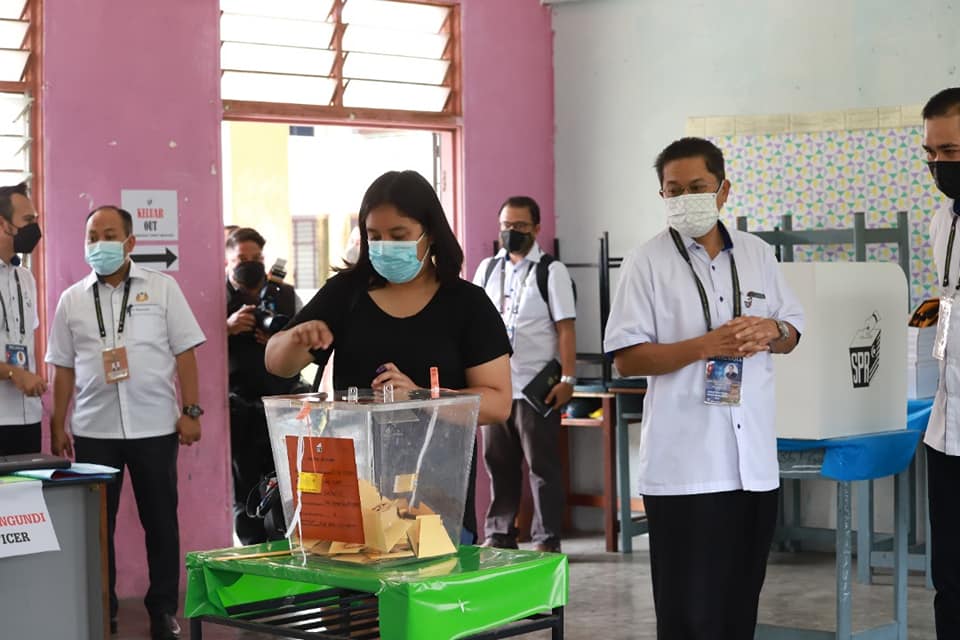The allocation of resources is political.
The political nature of resource allocation extends to everything – whether it’s resources for health, education, national security, or to combat climate change.
For the longest time, the Malaysian medical fraternity distanced itself from “politics”, seen as something beneath their lofty professional ideals in their ivory tower of credentials and an undesirable stain on their pristine lab coats in the sanitary confines of the hospital.
Yet, they grumble and moan behind closed doors about the snail pace of health care reform over the past few decades, wondering why is it that politicians don’t see what they see.
In a democracy, elected representatives often respond to what the people see. Even if they get alarming internal briefings from government officials that contradict the rosy official narrative, legislators and policymakers may end up believing their own public spin and thus, are reluctant to initiate painful reform that is seen as unnecessary.
Because changing something first requires admitting that something is broken. As the saying goes, if it ain’t broke, don’t fix it.
Health Minister Khairy Jamaluddin has taken on the task of producing a White Paper on health care reform spanning 15 years, intended to “future-proof” against any change in government or health minister.
Some of the key themes highlighted in the Health White Paper from the recent Health Policy Summit organised by the Ministry of Health (MOH) are, in my opinion, much needed reforms, such as doubling the public health care budget to 5 per cent of the gross domestic product (GDP) or decentralising public hospitals so that these facilities can operate more autonomously to incentivise savings.
Former Health Minister Dr S. Subramaniam, who participated in a panel discussion with Khairy at the Health Policy Summit, noted that unlike other countries where reforms are driven by people and the government responds to these needs, reforms in Malaysia are driven by top leadership to a populace who may be averse to change.
“Malaysians, by and large, are comfortable with what they have. Any attempt to dislodge them from this sense of comfort is going to be the destabilising factor.”
Dr S. Subramaniam, former Health Minister
In imparting lessons from the 1Care social health insurance debacle a decade ago in the early 2010s, Dr Subramaniam points out that proposed health care reforms must be communicated differently to different people, such as explaining to a low-income villager how he may benefit from faster clinic and hospital service or how a middle class person may get better coverage than her private health care insurance.
“Distrust is inherent in the system,” he says. “How are we going to manage this distrust because we’re doing something new?”
Although the medical fraternity has been saying for decades that Malaysia’s health care system is unsustainable, Malaysians in general do not understand this and hence, view the reform agenda with suspicion, such as perceiving increased autonomy for public hospitals as a corporatisation attempt.
Part of the blame, I must say, lies with the government and the Ministry of Health (MOH) for their reluctance to admit failure, even when problems may be caused by external factors beyond State control.
The Covid-19 pandemic gave Malaysia the perfect opportunity to reveal the wide gaps in our fragile health care system. Yet, MOH refused to give the media access to health care workers on the ground to depict just how terrible the situation was at the height of the pandemic.
Even after the acute phase of the pandemic, MOH still has not published an analysis on backlogged care over the past three years, unlike the UK’s NHS that produces monthly data releases on rising waiting lists for elective operations, missed cancer targets, skyrocketing waiting times for emergency care, and increased difficulty in GP referrals.
The National Cancer Society of Malaysia estimates that more than half a million 13-year-old girls missed their HPV shots from 2020 to 2022 due to school closures during the Covid-19 pandemic.
The only type of backlogged care that MOH has publicly addressed is elective procedures, with Khairy saying that it took 10 months to clear 92 per cent of 57,355 backlogged surgeries and medical-based cases in public hospitals by July 31.
Hence, the government is trapped by its own “success story” of managing Covid. If the health care system is still working fine, even after a global pandemic, why should we change it?
Being Apolitical Is The Problem, Not The Solution
Contrary to the opinion by many health advocates that politics are a barrier to improving the health care system, I argue that partisanship has never been a real stumbling block in attempts for health care reform over the past three decades.
Since Independence, Barisan Nasional (BN) has comfortably won every single general election until the 2018 poll. Pakatan Harapan’s (PH) loss of federal power from the Sheraton Move in early 2020 coincided with the Covid-19 pandemic, during which it would have been impossible to initiate any health care reform anyway, regardless who was in power.
Health care programmes initiated by PH – like the Peka B40 health screening programme and the mySalam health protection scheme – were retained by the subsequent Muhyiddin Yassin and Ismail Sabri Yaakob governments, even though BN heavily criticised mySalam during PH’s administration.
Opposition to certain health legislations – such as the proposed (and later shelved) amendment to the Prevention and Control of Infectious Diseases Act 1988 (Act 342) and the Control of Tobacco Product and Smoking Bill 2022 – was also bipartisan in nature.
I would also argue that it may be unfair to compel succeeding (elected) governments to adopt an agenda set by a previous administration, or undemocratic even, considering that Ismail Sabri’s hodge-podge government was never elected to begin with.
The reason why painful but necessary reform, like changing the way health care is financed in Malaysia, has been nearly impossible to undertake is because health is still not seen as a political issue, in that improving health care service delivery is not perceived as a source of public support or votes in an election.
If increased funds for health care are only to be drawn from the limited general taxation revenue pool, then politicians will naturally question which ministry’s budget will have to be cut to double MOH’s budget to RM70 billion.
If higher public health care funding is to be financed from other sources – like fuel or electrical subsidy cuts, a new social health insurance scheme, or the reintroduction of the goods and services tax (GST) – will this win votes for a party, or cost them the election altogether?
Making Health Care Political
The tobacco bill saw a rare move by the medical fraternity to be “political”, so to say, with public statements issued by multiple health care groups and medical practitioners in support of Khairy’s vision to create a smoke-free generation. Some went as far as telling MPs to declare if they received tobacco money.
If the tobacco bill does not make it to debate and passage before Budget 2023 is tabled on October 7, then medical groups and health care professionals should go all out in pushing for the tobacco generational end game (GEG) as an election issue in GE15.
Should the 15th general election be called before Khairy is able to table the Health White Paper in Parliament, the medical fraternity can still make certain issues identified in the White Paper major election topics, such as health care financing.
Health care groups can create a score card with three main questions to pose to election candidates:
- Do you support banning cigarettes and vape for anyone born from 2007?
- Do you support cutting fuel subsidies to finance an increase in the public health care budget?
- Do you support having people partially pay for all types of medicines in public health care facilities?
Making health care an issue in GE15 will keep the health reform agenda alive and, more importantly, translate ideas into action because they are driven by the people, not the medical elite.

Boo Su-Lyn is CodeBlue editor-in-chief. She is a libertarian, or classical liberal, who believes in minimal state intervention in the economy and socio-political issues.








